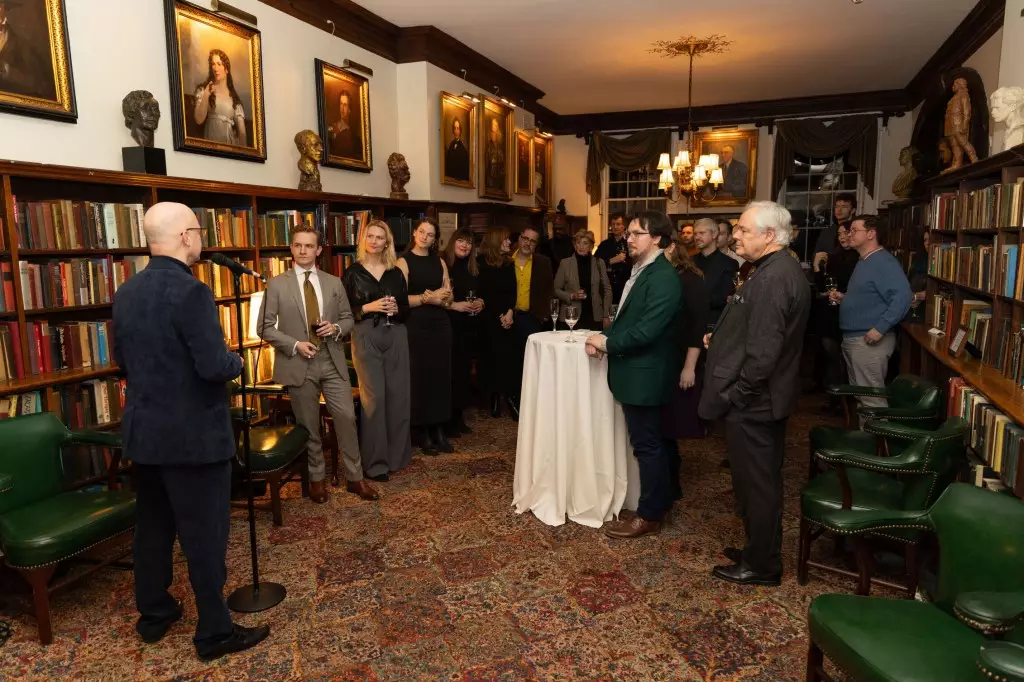In an age where artistic expression continuously evolves, the London Academy of Music & Dramatic Art (LAMDA) has made a significant leap by establishing its presence in New York City. Known as one of the longest-standing drama schools globally, LAMDA’s recent launch is more than just a physical space; it signifies a transformative opportunity within the American arts landscape. By collaborating with the American Friends of LAMDA (AFLAMDA), this institution is poised to become a nexus for budding talent, encouraging innovation, and fostering collaborative projects within the realm of performing arts.
Recently, the official launch event for the New York facility was hosted at the illustrious Players’ Club, a venue steeped in theatrical history. This celebration brought together a diverse group of attendees, including LAMDA faculty, distinguished alumni, and influential guests from the industry. Notably, the event commemorated not just the expansion but the rich legacy that LAMDA has woven into the fabric of theatrical education worldwide. The presence of esteemed personalities, particularly the newly appointed AFLAMDA patron, Brian Cox—best known for his role in the critically-acclaimed television series *Succession*—added a layer of prestige to the proceedings, highlighting the caliber of talent that LAMDA has consistently nurtured.
Adapting to a Changing Landscape
Mark O’Thomas, the Principal and CEO of LAMDA, shared his insights on this new venture, describing it as an exhilarating chapter for the school. He underscored the necessity of adapting to an ever-evolving cultural and creative environment. The emphasis on “nurturing talent and creating opportunities” encapsulates LAMDA’s mission to stay relevant in a world increasingly drawn to diverse forms of storytelling and expression.
This sentiment resonates not only within the walls of LAMDA but also across the broader artistic community. As global cultural exchanges become more commonplace, educational institutions like LAMDA serve as vital conduits for cross-pollinating ideas and techniques, which can only enhance the overall richness of the arts in both the UK and the US.
AFLAMDA’s role in this collaboration cannot be understated. With an executive board comprising influential figures from various fields, including acting and production, they are not just facilitators but advocates for American artists looking to engage with UK training methodologies. Their initiatives will likely focus on scholarships, internships, and workshops aimed at elevating the artistic skills of students while also celebrating diverse narratives.
With board members such as actors Gabby Beans and David Oyelowo, the potential for mentorship and community building becomes apparent. Their experiences will enrich the programs that LAMDA offers, fostering a supportive environment in which students can thrive and evolve.
In parallel to LAMDA’s expansion, the entertainment industry is witnessing an exciting evolution in various well-loved formats. Channel 4’s *First Dates Beach Club* exemplifies this trend, taking established concepts to new, vibrant locations to attract fresh audiences. Such innovations reflect a broader understanding of audience preferences, particularly towards immersive experiences that blend entertainment with escapism.
Similarly, upcoming festivals like the BFI Flare: London LGBTQIA+ Film Festival, showcasing diverse narratives in cinema, underscore the importance of representation in the arts. Works such as Andrew Ahn’s *The Wedding Banquet*, with its rich exploration of identity and family dynamics, align perfectly with LAMDA’s ongoing mission of inclusivity and cultural understanding through education.
As LAMDA establishes roots in New York, it is essential to consider not just what this means for the school itself but for the theatre and film industries at large. By providing a platform for emerging talent to learn, experiment, and collaborate within a diverse environment, LAMDA will inevitably influence the next generation of artists who will shape the future of storytelling.
The opening of LAMDA’s New York facility marks a crucial development in how educational and artistic entities can collaborate to foster talent and creativity. This initiative signifies a commitment to enhancing the performing arts landscape, allowing for greater inclusivity, diversity, and innovation. As institutions adapt to the demands of contemporary audiences and shifts in cultural paradigms, partnerships like these will ensure that the performing arts continue to thrive in vibrant new forms. The next chapter has begun, and it is one filled with promise for aspiring artists on both sides of the Atlantic.
